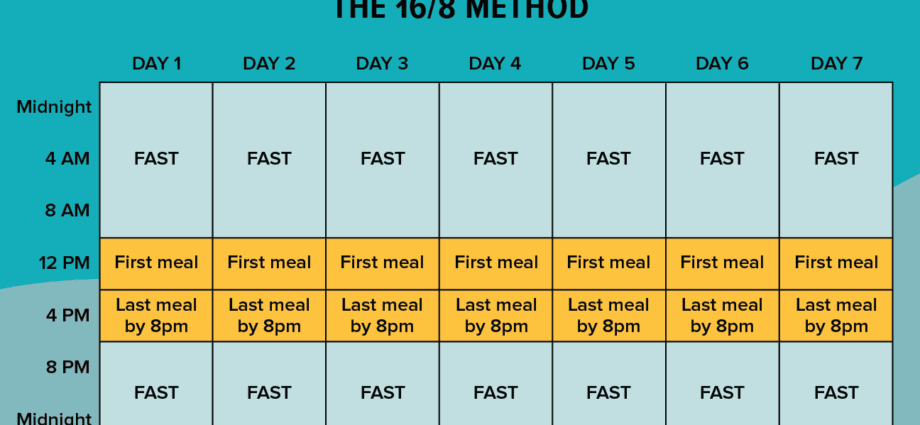Contents
Anyone who cares about their health simply needs to know about the benefits of fasting days. Many people are mistaken that such preventive measures are designed to get rid of the pounds gained in weeks. Fasting days really contribute to weight loss, but only if you follow a diet or proper diet.
Nutritionists recommend unloading no more than 1-2 times a week, but at the same time providing the body with the necessary portion of calories on the remaining days. In no case should you turn fasting days into a long hunger strike.
The main goals of the fasting days:
- allow the body to take a break from the daily digestion of large amounts of high-calorie foods;
- to enable the body to get rid of toxins and other waste, in other words, to get rid of unwanted substances;
- to reboot the stomach and begin a smooth transition to a balanced diet, teaching the body to saturate with smaller doses of food, as well as give up harmful foods.
Types of fasting days
aimed at achieving different goals:
- proteinaceous – the most effective in the fight against obesity, and can also be aimed at promoting the treatment of various diseases;
- carbohydrate – recommended for weight loss, as well as for various chronic diseases and exacerbations;
- fatty – carried out for malaise, as well as for problems with the digestive system;
- cleansing – preventive measures for.
Subject to important recommendations, the daily restriction in food intake as a whole has a beneficial effect on the entire body, and in particular, it stimulates metabolism, contributes to the burning of excess fat reserves and the removal of toxins.
Recommendations for fasting days
- 1 During the fasting day, it is necessary to avoid both physical and mental intense stress. It is best to spend this day in a calm home environment.
- 2 After a fasting day, you need to be careful about food intake. It is worth starting with a light meal, the processing of which the body can handle without problems, otherwise indigestion cannot be avoided.
- 3 With a restriction in nutrition, stagnation of bile occurs, in order to get rid of it after a fasting day, it is recommended in the morning, before having breakfast, to take a tablespoon of vegetable oil, and throughout the day, instead of steaming herbs that contribute to the withdrawal of bile.
- 4 Of course, the food norm of a fasting day depends on weight and energy consumption, but for orientation, on average, it is recommended to consume no more than 1,5-7 kg of vegetables and 400-700 g of protein products.
- 5 To protect yourself from the temptation of food, you need to protect yourself from delicious smells, a refrigerator full of food, a society with a sweet tooth or just lovers of good food, etc. If hunger is unbearable, then you can drink a glass of low-fat yogurt or kefir.
- 6 During the day, you must consume at least 2,5 liters of the usual.
- 7 It is recommended to prepare the body in advance for a fasting day by reducing portions of food or eating light, low-calorie foods.
- 8 Unloading can be combined with other methods of cleansing the body: spend this day in a bath or sauna, visit the pool, go for a massage. But it is advisable to arrange such relaxation only if fasting days are held regularly for a long time.
- 9 It is not recommended to use diuretics or laxatives on such days, because they harm the body, interfering with the effectiveness of the effect of unloading.
The benefits of fasting days
Fasting days contribute not only to the normal functioning of the intestines and the whole body, but can also be aimed directly at eliminating some health problems. All types of fasting days developed by specialists have a beneficial effect on the activation of metabolism, the removal of toxins and toxins from the body, as well as on acid-base balance, mineral metabolism, and the cardiovascular system.
Fasting days for weight control
To maintain a healthy weight or to improve the effectiveness of the diet, it is best to have protein fasting days. That is, throughout the day you need to consume only low-fat boiled and products, as well as vegetable proteins. But don’t forget to drink plenty of water.
The protein-based unloading also allows small amounts of fresh ones to be included in the diet, but they should be without various additives, sauces and gravies, you can only slightly salt.
Such restrictions do not cause hunger, but you need to eat permitted food every 4-5 hours.
Fasting days with a healthy lifestyle
In order to always be in good shape, to feel cheerful and comfortable, even in the absence of extra pounds, it is recommended to carry out cleansing fasting days 1-2 times a month, which contribute to the elimination of toxins from the body. In this case, you need to eat only light food in as small portions as possible. At the same time, the limited diet does not include proteins, fats and easily digestible carbohydrates, but only vegetables and greens, necessarily ripened in the fresh air, as well as vegetables and water. You can drink only when you want, that is, exactly as much as the body requires.
A fasting day will be more effective if you dine on vegetables the day before, and limit yourself to a glass of juice or a small portion of vegetable vegetarian soup in the morning for breakfast.
To fight hunger, you need to eat in small portions, but often – every three hours.
Why are fasting days dangerous?
It is strictly forbidden to spend fasting days during pregnancy and lactation, with fatigue, malaise, depression or stress, as well as during treatment. If you have any acute or chronic illness, you should consult your doctor before setting dietary restrictions!










